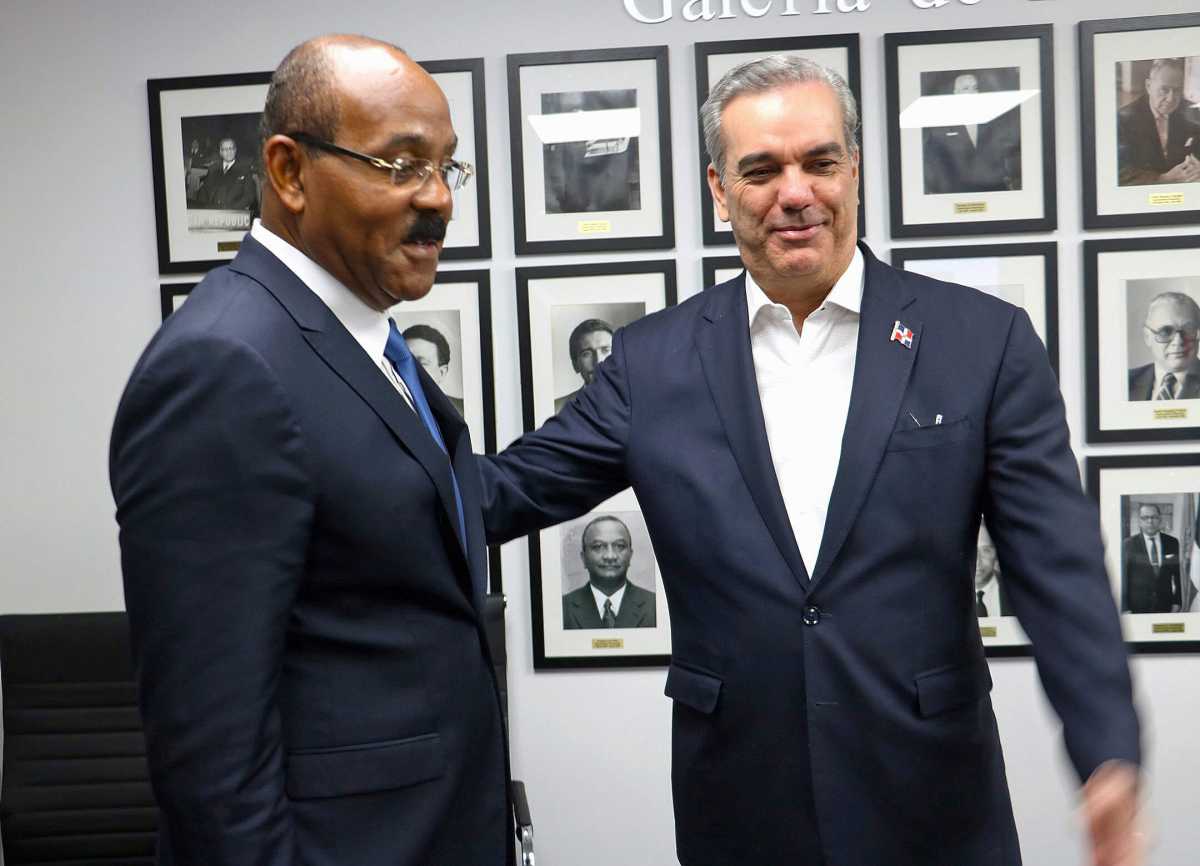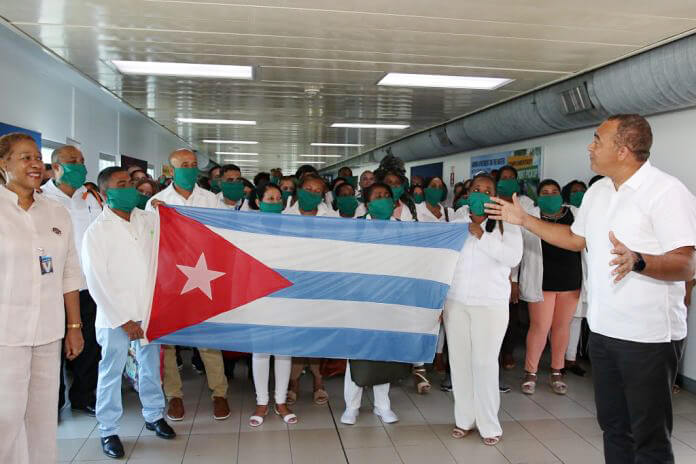As the international community prepares to deploy a multinational force to help Haiti’s beleaguered national police, The Bahamas says its contingent is fully trained and ready to commence work.
Minister of Security Wayne Munroe told reporters that all systems are being readied for any deployment to CARICOM’S poorest, most populous and most strife-torn nation in the coming months. The archipelago off Florida and Jamaica are the first member nations to offer to contribute boots on the ground in Haiti, The Bahamas especially, because it is forced to absorb thousands of Haitian boat people seeking a better life in neighboring Bahamian islands.
“I imagine that we would have selected some who are creole speakers. We do have creole speakers in all of our security forces, but all of that we would disclose once the decision is made after the preliminaries have been gone through,” said Minister Munroe as he gave an update on local readiness for the mission.
“We will then have to get down to the details of a commitment. What is proposed? What rules have to govern it? Depending on that, then we’ll make decisions. So, we’re still at the preliminary stage,” Munroe said. He said 150 personnel have already been identified and training is almost complete.
Two days after he spoke to reporters, The Dominican Republic’s mission in Jamaica issued a release late Monday crediting its government for helping to influence a decision by Kenya to lead the multinational force to Haiti.
It quoted President Luis Abinader as saying that The DR played a major role behind the scenes getting the East African nation to come on board as the lead. Like The Bahamas, Jamaica and The Turks and Caicos Islands, the DR faces the brunt of refugee-related problems so officials have made it clear that they want to see an end to the gang violence as it has forced thousands to attempt to cross the border into The Dominican Republic.
“We underwent two long years of work, of persistence. At some moments we thought that no one was listening to us, but after the perseverance of our diplomacy we have achieved what must be the beginning of the end for peacemaking in the country,” the release quoted the president as saying noting that it is especially so “for Haiti, and the Dominican Republic.”
A United Nations Security Council resolution a week ago cleared the way for the international deployment but a court in Kenya on Monday temporarily blocked authorities from acting until it hears further arguments from activists on Oct. 24.
Jamaica, Guyana, Suriname, Antigua and Trinidad are the CARICOM nations which have given signals that they too would send military or police personnel with Guyana insisting that its forces would be limited only to assisting local police rather than participating in combat missions of any kind.
Haiti is the last nation to become a member of the 15-nation CARICOM bloc.
A major part of the of the ground work for the multinational force was done at the regional leaders summit in The Bahamas in February. A special guest at that conference was Canadian Prime Minister Justin Trudeau who had pledged financial and other assistance to Haiti to help it cope with the marauding gangs.
Playing its part outside of a multinational force, CARICOM has tried to mediate in the Haitian situation by bringing multiple stakeholders for talks. In June more than 50 representatives from various groups had flown to Jamaica for talks with CARICOM’s so-called eminent persons group comprising former prime minister Bruce Golding of Jamaica, Perry Christie of The Bahamas and Kenneth Anthony of St. Lucia. They also visited Haiti in the past month but complained afterward that some of the stakeholders had attempted to amend agreed arrangements in some key areas including who should be in a room with the ex-leaders in addition to demanding the resignation of Prime Minister Ariel Henry.
Haiti right now has no functioning parliament, a president or any elected official. It has been in additional turmoil ever since gunmen had invaded the private residence of President Jovenel Moise and assassinated him two years ago.



























